Please note, links to all the Freedom Essays are included at the end of this essay. Open any essay to read, print, download, share or listen to (as an audio).
Freedom Essay 19
An Introduction to the significance
of FREEDOM, by Professor Harry Prosen
About Professor Prosen, M.D., M.Sc. (1930–2021)
Dr Harry Prosen was a professor of psychiatry who worked in the field for over 60 years, including chairing two departments of psychiatry and serving as a president of the Canadian Psychiatric Association. Professor Prosen was appointed one of 500 Specially Selected Fellows of the American College of Psychiatrists, and a Distinguished Life Member of the American Psychiatric Association. He was also psychiatric consultant to the Bonobo Species Preservation Society. (You can read Professor Prosen’s full biography and obituary here.)
What follows is an adapted excerpt from Professor Harry
Prosen’s Introduction to Jeremy Griffith’s book
FREEDOM: The End Of The Human Condition.
- - - - - - - - - - - - - - - - - -
“In the whole of written history there are only two or three people who
have been able to think on this scale about the human condition.”
(Prof. Anthony Barnett, zoologist, author and broadcaster, 1983)
The explanation of the human condition, which Jeremy Griffith has found, is THE key to a fully unifying understanding of our divided, alienated and corrupt condition, and it is the insight from which all the other mysteries about human life unravel. [The explanation of the human condition is presented in THE Interview and is summarised in Video/Freedom Essay 3.] What needs to be stressed, however, is that finding that explanation depended on overcoming a very great psychological hurdle—which Charles Darwin actually alluded to when, towards the end of The Origin of Species, he wrote that ‘In the distant future I see open fields for far more important researches. Psychology will be based on a new foundation…Light will be thrown on the origin of man and his history’ (see par. 5 of FREEDOM). Yes, while Darwin shed illuminating light on the origin of the variety of life, there biology has been stalled—and for a very good reason—because the next step for biologists involved ‘far more important’ (in terms of difficulty) ‘research’. For ‘light’ to ‘be thrown on the origin of man and his history’, the issue of our species’ seemingly highly imperfect condition had to be explained, but the ‘psycholog[ical]’ difficulty was that the human condition has, in fact, been so unbearably self-confronting and depressing a subject that, as the Australian zoologist, author and broadcaster, Professor Anthony Barnett, once admitted in the opening quote to this essay, only a rare few individuals in recorded history have been able to go anywhere near it. Indeed, as Jeremy explains in chapter 2:4 of FREEDOM, the fundamental reason science has been what is referred to as ‘reductionist’ and ‘mechanistic’ is because it has avoided the great overarching, all-important but unbearably confronting and depressing issue of the human condition and instead reduced its focus to only looking down at the details of the mechanisms of the working of our world—the great hope being that understanding of those mechanisms would eventually make it possible to explain, understand and thus at last be able to confront the human condition. Which is all very well, but the problem was that to assemble that liberating explanation from the hard-won insights into the mechanisms of the workings of our world, a biologist was going to have to emerge who could face our species’ psychosis! As is explained in F. Essay 40, mechanistic science had to do all the hard work of, as it were, finding the pieces of the jigsaw puzzle, but unable to look at the whole picture its practitioners were in no position to put it together—that task required someone sound and secure enough in self to look at the whole picture, to confront the human condition, which, as emphasized, is no mean feat in itself, but one which Jeremy was able to accomplish.
In The Structure of Scientific Revolutions (1970), science historian Thomas Kuhn noted that ‘revolutions are often initiated by an outsider—someone not locked into the current model, which hampers vision almost as much as blinders would’ (see par. 6 of FREEDOM). And when it comes to addressing the problem of the human condition this need to think independently of the existing details-only-focused, whole-view-of-the-human-condition-avoiding, mechanistic framework could not be more critical. For someone to be able to explain, and, through that explanation, bring reconciling, ameliorating understanding to our troubled human-condition-afflicted lives, they obviously had to be thinking from a position outside that conventional mechanistic paradigm. The situation certainly brings to mind Einstein’s famous comment that ‘We can’t solve problems by using the same kind of thinking we used when we created them’!
I might add that I think we have always known that profound insight into human nature wasn’t going to emerge from the ivory towers of intellectualdom, rather it was going to come from the deepest of deep left field, somewhere where some extraordinary untainted clarity of thought might still exist, such as from the backwoods of Australia where these answers are actually from. [See F. Essay 50 for explanation of Australia’s role in solving the human condition.]
So what exactly is the human condition, and why has the human race, including the mechanistic scientific establishment, been so committed to avoiding it, to living in such complete denial of it.
To draw on Jeremy’s own penetrating description, the human condition is our species’ extraordinary capacity for what has been called ‘good’ and ‘evil’. While it’s undeniable that humans are capable of great love and empathy, we also have an unspeakable history of greed, hatred, rape, torture, murder and war; a propensity for deeds so shocking and overwhelming that the eternal question of ‘Why?’ seems depressingly inexplicable. Even in our everyday behavior, why, when the ideals of life are to be cooperative, selfless and loving, are we so ruthlessly competitive, selfish and aggressive that human life has become all but unbearable and our planet near destroyed? How could humans possibly be considered good when all the evidence seems to unequivocally indicate that we are a deeply flawed, bad, even ‘evil’ species?
As my profession has taught me only too well, for most people, trying to think about this ultimate of questions of whether humans are fundamentally good or not has been an unbearably self-confronting exercise. Indeed, while the term ‘human condition’ has become fashionable, its superficial use masks just how profoundly unsettling a subject it really is. Again, the truth is, the issue of the human condition has been so depressing for virtually all humans that only a rare few individuals in history have been sound and secure enough in self to go anywhere near what the human condition really is. So for Jeremy to so freely and accurately talk about it as he does in this book, he clearly must be one of those rare few. Nurtured by a sheltered upbringing in the Australian ‘bush’ (countryside), Jeremy’s soundness and resulting extraordinary integrity and thus clarity of thought, coupled with his training in biology, has enabled him to successfully grapple with this most foreboding of all subjects for the human mind of the human condition and produce the breakthrough, human-behavior-demystifying-and-ameliorating explanation of it. [See www.humancondition.com/jeremy-griffith to read Jeremy’s complete biography; his biography also forms the basis of F. Essay 49.]
This ability exists in stark contrast with the current paradigm of thought that permeates science, and indeed all aspects of human life, which has had no choice but to avoid—in truth, deny—the seemingly inexplicable and unbearably confronting and depressing question of the human condition, meaning other scientists have remained failure-trapped in trying to explain it. If you can’t confront the issue you’re in no position to solve it. In fact, as is reinforced in Video/F. Essay 14 & F. Essay 40, the human condition has been such a fearful, unconfrontable subject that science as a whole has become the purveyor of extremely dishonest theories that seek to falsely account for, and thus dismiss, our paradoxical nature. As Jeremy explains in chapter 2:11 of FREEDOM, there can not be a more dangerous example of this dishonesty than the theory that appears in biologist E.O. Wilson’s 2012 book, The Social Conquest of Earth—a theory that evasively trivializes the human condition as nothing more than selfless instincts at odds with selfish instincts within us.
In light of the dishonesty that has been systemic in scientific enquiry, Jeremy’s journey in bringing understanding to the human condition and protecting the integrity of that explanation—a 40 year saga—has been a protracted and torturous one [read about the persecution Jeremy has suffered in chapter 6:12 of FREEDOM], but bringing understanding to the human condition is the only rational path forward for the human race! Indeed, as a reflection of the looming psychological crisis for the human race that is the end result of having to live ever deeper ‘underground’ in Plato’s horrible ‘cave’ of ‘human condition’-avoiding, dishonest, alienated darkness, and the now desperate need for the reconciling, redeeming and psychologically transforming light of understanding of the human condition, the following initiatives have all taken place in the last 5 years! [The sources of the following quotes are provided when Jeremy refers to them in par. 603 of FREEDOM.]
- in December 2012 an American billionaire pledged $200 million to Columbia University’s ‘accomplished scholars whose collective mission is both greater understanding of the human condition and the discovery of new cures for human suffering’; and,
- in January 2013 the European Commission announced the launch of the ‘Human Brain Project with a 2013 budget of €54 million (US$69 million)’ with a ‘projected billion-euro funding over the next ten years’ with the goal of providing ‘a new understanding of the human brain and its diseases’ to ‘offer solutions to tackling conditions such as depression’; and,
- in April 2013 the President of the United States, Barack Obama, announced a ‘Brain Initiative’, giving ‘$100 million initial funding’ to mechanistic science to also find ‘the underlying causes of…neurological and psychiatric conditions’ afflicting humans; and,
- in April 2013 BBC News Business reported that ‘Lord Rees, the Astronomer Royal and former president of the Royal Society, is backing plans for [Cambridge University to open] a Centre for the Study of Existential Risk [meaning risk to our existence]. “This is the first century in the world’s history when the biggest threat is from humanity,” says Lord Rees’. The article then referred to Oxford University’s Future of Humanity Institute that was established in 2005, which is ‘looking at big-picture questions for human civilization…[and] change…[that] might transform the human condition’, quoting its Director and advisor to the Centre for the Study of Existential Risk, Nick Bostrom: ‘There is a bottleneck in human history. The human condition is going to change. It could be that we end in a catastrophe or that we are transformed by taking much greater control over our biology’!
There are two points I would make about these very recent initiatives. Firstly, establishing a center to study the human condition is precisely the initiative Jeremy took 30 years ago when he created the self-funded WTM, an act of prescience that evidences his clarity and integrity of thought—the WTM even has the now much sought-after domain name ‘humancondition.com’. Secondly, while the fastest growing realization in the world has to be that humanity can’t go on the way it is going—indeed, as Bostrom said, the great fear is that we are rapidly approaching an endgame situation [see F. Essay 55: Endgame for the human race], a ‘bottleneck in human history’, where the human species is either ‘transformed’ or ‘we end in a catastrophe’—and so these initiatives are admirable in their goal to address the underlying, real problem afflicting the human race of the human condition, they are still attempting to do so from the same old reductionist, mechanistic position, which, as Jeremy explains in chapter 2 of FREEDOM, is an approach committed to avoiding the real psychological nature of the human condition, and as such is self-defeating; it is doomed to fail. An opinion piece by Benjamin Y. Fong of the University of Chicago that was published in The New York Times in 2013 made this very point: ‘The real trouble with the Brain Initiative is…the instrumental approach…[such biological reduction is] intent on uncovering the organic “cause”…of mental problems…rather than looking into psychosocial factors…By humbly claiming ignorance about the “causes” of mental problems…neuroscientists unconsciously repress all that we know about the alienating, unequal, and dissatisfying world in which we live and the harmful effects it has on the psyche, thus unwittingly foreclosing’ the ability to ‘alleviate mental disorder’ (‘Bursting the Neuro-Utopian Bubble’, 11 Aug. 2013; see www.wtmsources.com/151). To summarize what Fong has said here and elsewhere in his article, mechanistic, ‘reduction[ist]’ science’s ‘synthetic’ focus on the ‘organic’ rather than the ‘psychological’ nature of our problems can only end in denying humans ‘the possibility of self-transformation’. It is only Jeremy’s approach of confronting the real, psychological nature of the human condition that could hope to find, and now has found, the reconciling and human-race-‘transform[ing]’ understanding of the human condition—and yet it is his approach that has been treated as heretical, an anathema and a threat by the mechanistic scientific establishment!! My sincere hope, however, is that with our species’ predicament now so dire, the scientific establishment will finally acknowledge and support Jeremy’s human-race-saving insight into the human condition—and the other critically important insights made possible by his power to unravel our species’ psychosis.
I want to emphasize what I have just said: the desperation to solve the human condition that is apparent in the sudden emergence of all these admirable yet ultimately futile multi-multi-million dollar-supported Brain Initiatives evidences just how dire our situation is—just how close humanity is to the ‘end in catastrophe’, cornered, ‘bottleneck’, endgame situation of terminal alienation [again, see F. Essay 55]. And since Jeremy’s psychosis confronting, solving and ‘transform[ing]’ insights into ‘the human condition’ are all that can save humanity from this fate, this book is all that the human race has standing between it and extinction!
That is how important this book is, and why science must now recognize the substance and truth it contains. Indeed, the importance of the ideas in this book is immeasurable. The depths they enable us to reach in understanding ourselves and our world is bottomless. The great impasse to a full understanding of our existence has finally been breached. This truly is it, the day of days, the coming of our species’ moment of liberation.
- - - - - - - - - - - - - - - - - -
Watch Jeremy Griffith present the breakthrough redeeming explanation of the human condition in THE Interview; for a fuller explanation read chapter 3 of FREEDOM; and for a summary presentation of the key ‘instinct vs intellect’ explanation watch Video/F. Essay 3. We also encourage you to read Professor Harry Prosen’s complete Introduction to FREEDOM.
Discussion or comment on this essay is welcomed—see below.
Please Note, if you are online you can read, print, download or listen to (as a podcast) THE Interview, The Great Guilt, The Great Transformation, Sermon On The Beach or any of the following Freedom Essays by clicking on them below.
INTRODUCTION TO THE EXPLANATION & RESOLUTION OF THE HUMAN CONDITION: THE Interview That Solves The Human Condition And Saves The World! | The Great Guilt that causes the Deaf Effect | The Great Transformation: How understanding the human condition actually transforms the human race | Sermon On The Beach | Freedom Essay 1 Your block to the most wonderful of all gifts | 2 The false ‘savage instincts’ excuse | 3 THE EXPLANATION of the human condition | 4 The ‘instinct vs intellect’ explanation is obvious – short | 5 The transformation of the human race | 6 Wonderfully illuminating interview | 7 Praise from Prof. Prosen | 8 “How this ends racism forever” | 9 “This is the real liberation of women” | 10 What exactly is the human condition? | 11 The difficulty of reading FREEDOM and the solution | 12 One hour summarising talk | 13 The WTM Deaf Effect Course | 14 Dishonest biology leads to human extinction | 15 How your life can immediately be transformed | 16 The Shock Of Change | THE BOOKS: 17 Commendations & WTM Centres | 18 FREEDOM chapter synopses | 19 FREEDOM’s significance by Prof. Prosen | 20 The genius of Transform Your Life | THE OTHER KEY BIOLOGICAL EXPLANATIONS: 21 How did we humans acquire our altruistic moral conscience? | 22 Fossil discoveries evidence our nurtured origins | 23 Integrative Meaning or ‘God’ | 24 How did consciousness emerge in humans? | 25 The truthful biology of life | • Survey seeking feedback | MEN & WOMEN RECONCILED: 26 Men and women reconciled | 27 Human sex and relationships explained | THE END OF RACISM: 28 The end of racism | 29 Can conflict ever end? | RESIGNATION: 30 Resignation | 31 Wordsworth’s all-revealing great poem | MORE ON THE TRANSFORMATION: 32 More on the Transformation | 33 Jeremy on how to become transformed | THE END OF POLITICS: 34 This understanding ends the polarised world of politics | 35 Death by Dogma left-wing threat | 36 Saving Western civilisation from left-wing dogma | 37 The meaning of superhero and disaster films | RELIGION DECIPHERED: 38 Noah’s Ark explained | 39 Christ explained | 40 Judgment Day finally explained | 41 Science’s scorn of religion | MEANING OF ART & CULTURE: 42 Cave paintings | 43 Ceremonial masks explained | 44 Art makes the invisible visible | • Second survey seeking feedback | 45 Prophetic songs | 46 Anne Frank’s faith in human goodness fulfilled | 47 Humour and swearing explained | 48 R.D. Laing’s fearless honesty | ABOUT BIOLOGIST JEREMY GRIFFITH: 49 Jeremy’s biography | 50 Australia’s role | 51 Sir Laurens van der Post’s fabulous vision | 52 Jeremy’s children’s book A Perfect Life | 53 The ‘instinct vs intellect’ explanation is obvious – long | 54 The accusation of hubris | DO WE FAIL OR DO WE MAKE IT? 55 Endgame for the human race | 56 Why there have been ferocious attacks on the WTM | 57 Magnificence of the Transformed State – video 1 | 58 Magnificence of the Transformed State – video 2 | MARKETING: 59 Shouldn’t the WTM’s website be toned down? | 60 The crime of ‘ships at sea’ ‘pocketing the win’ | GENERAL DISCUSSIONS BY JEREMY: 61 General Discussion by Jeremy Aug. 2018 | 62 Jeremy’s Masterpiece Presentation Feb. 2019 | HEALTH & HEALING: 63 Pseudo therapy/healing | 64 Real therapy/healing | From here on are Transformation Affirmations and More Good Info Emails
These essays were created in 2017-2024 by Jeremy Griffith, Damon Isherwood, Fiona Cullen-Ward, Brony FitzGerald & Lee Jones of the Sydney World Transformation Movement Centre. All filming and editing of the videos was carried out by Sydney WTM members James Press & Tess Watson during 2017-2024. Other members of the Sydney WTM Centre are responsible for the distribution and marketing of the videos/essays, and for providing subscriber support.


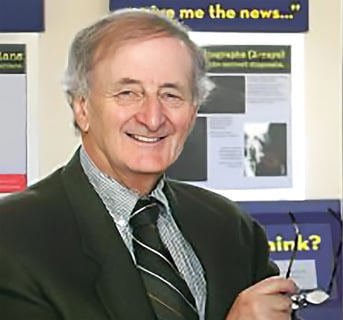
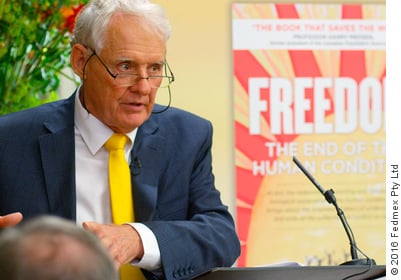
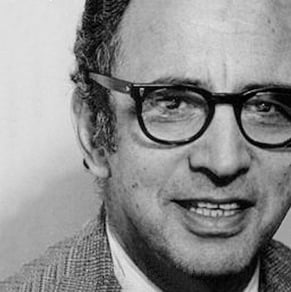
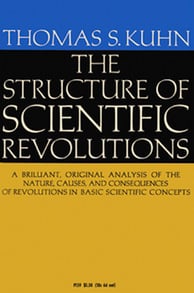
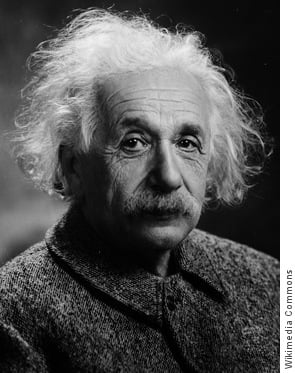
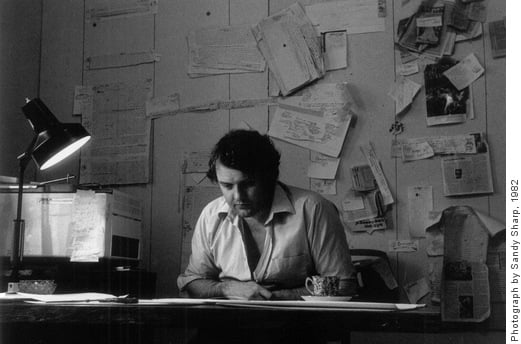
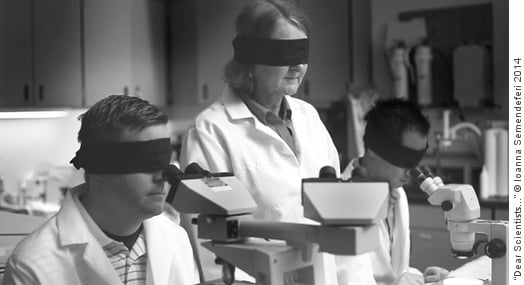
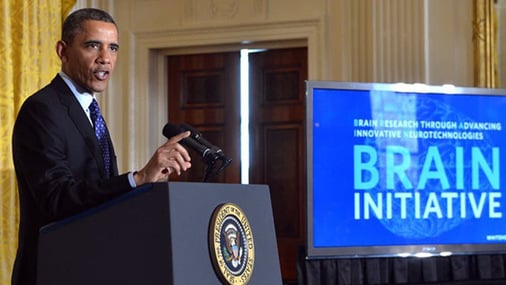
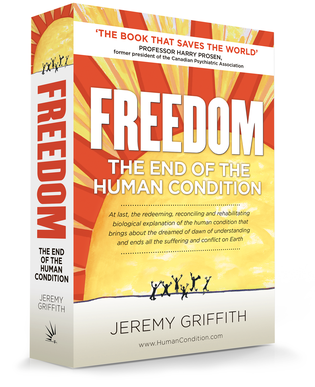

Please wait while the comments load...
Comments